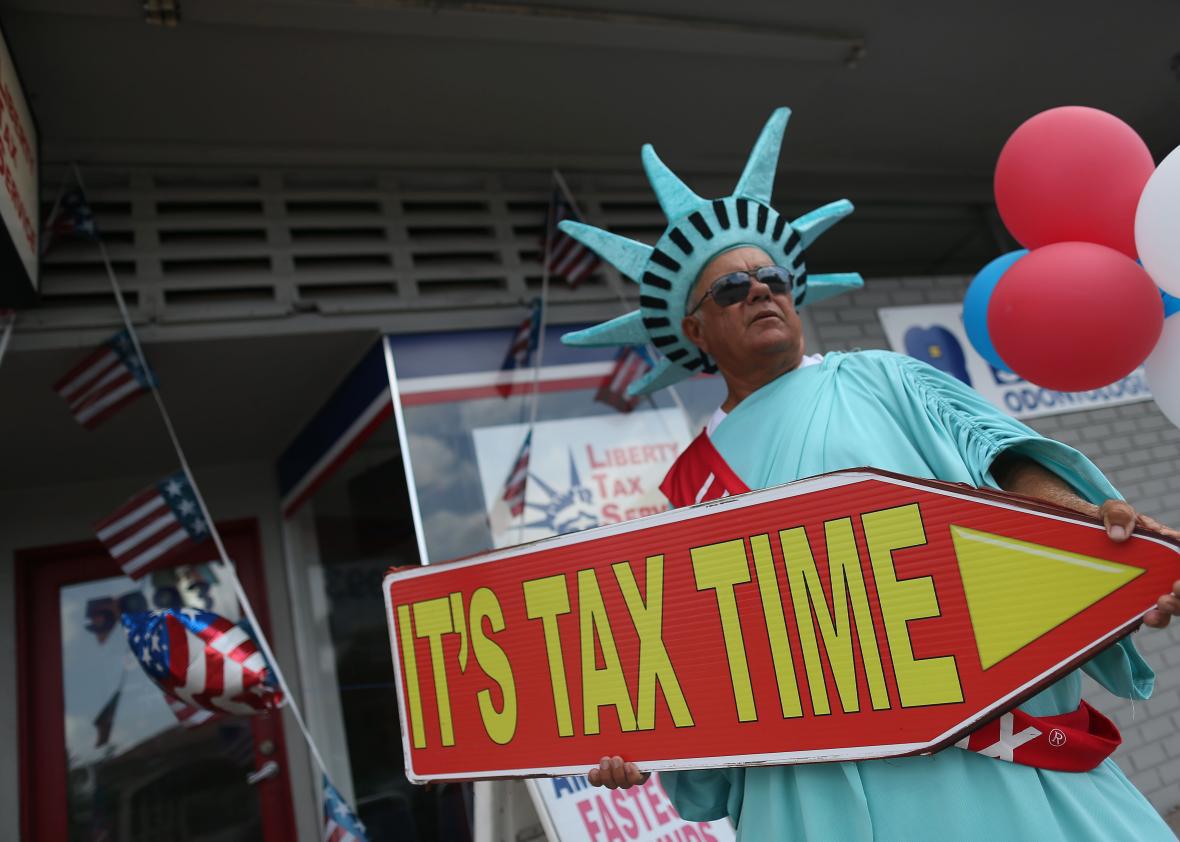Last month, the list of of insane anecdotes about American inequality got the tiniest bit longer, when New Jersey officials revealed that their budget projections had been thrown into question because just one very wealthy resident had decided to pick up and move. The man capable of singlehandedly rocking their revenue forecasts turned out to be billionaire hedge funder David Tepper, who after 20 years of calling the Turnpike State home had changed his address to income-tax-free Florida and relocated his business headquarters to Miami. It seemed like a particularly nightmarish illustration of the idea that high state taxes simply drive away the rich and their precious dollars.
Fans of progressive taxation will be grateful, then, for a very cool new study published in the American Sociological Review that suggests that rich-guy tax flight really isn’t much of an issue on the state level. Researchers from Stanford and the U.S. Treasury Department looked at federal tax records from every American who reported an income of $1 million or more between the years 1999 and 2011 to see if they could find a pattern of millionaires moving from high tax states to low tax states. Previous papers on the topic have typically looked at residents in just a handful of states, or incredibly specific (quirky) occupational groups like professional athletes, so this one gives us a much, much broader, and necessary, view. The authors conclude that there is in fact a slight trend of wealthy households moving to less redistributive climes. However, it’s “small and has little effect on the millionaire tax base.”
How little is there to worry about? For the average state, the authors find that a one percentage point increase in top tax rates would lead them to lose 23 millionaire families. “Because the average state has an annual millionaire population of more than 9,000, this is clearly a small effect size,” they note. A 10 percent increase in tax rates would lead to a 1 percent loss in the millionaire population. In the end, they calculate that states could maximize their tax revenue with a 68 percent top rate on high earners. I wouldn’t exactly take that as a hard, unimpeachable number, but it suggests New Jersey, New York, and California aren’t exactly in danger of causing too many of their golden geese to migrate.
In fact, it turns out that even though the rich do seem to keep taxes in mind when they move, they’re not that mobile on the whole. The paper’s authors find that while there are about 500,000 millionaire households annually, only about 12,000 move between states in a given year. That 2.4 percent moving rate is much lower than what you tend to see among middle-class earners who bring home less than $40,000.
This makes sense once you stop and think about it for a moment. We often imagine the rich as frictionlessly mobile profesionals who can take their talents to South Beach or wherever at a moment’s notice. But that’s not really the case. They have committments and ties that keep them rooted in their communities. As the study’s authors point, they’re likely to be married, and their spouses frequently work. They tend to have children, who are often in school. If they own a business, it’s often tricky to move, because they have either employees or a local client base. (It’s hard for a successful lawyer or a doctor to just transport his or her practice across the country.) And that doesn’t even begin to touch on the gravity exerted by their social circles. Of course, some of these issues might be less of a concern for astronomically wealthy finance types who can rely on their globetrotting friends at Art Basel to keep them company. But for your typical rich, it’s a real issue. If you’re a sort of medium-loaded, it’s probably much harder in a lot of ways to relocate up your life than if you’re a youngish couple that makes $50,000 a year.
That said, Tepper does seem to be emblematic of one interesting pattern. The study finds that the trend of millionaires heading to low-tax states is basically driven by moves to, yes, Florida. Why millionaires love the Sunshine State above, say, tax-free Texas can’t really be gleaned from the IRS data, but the researchers suggest beaches might be a factor. We can also probably add sunshine and golf to the list. But more importantly, it seems as if this is a strong argument against states trying to attract rich new residents by cutting their tax rates. They’re just going to head to Miami anyway.
